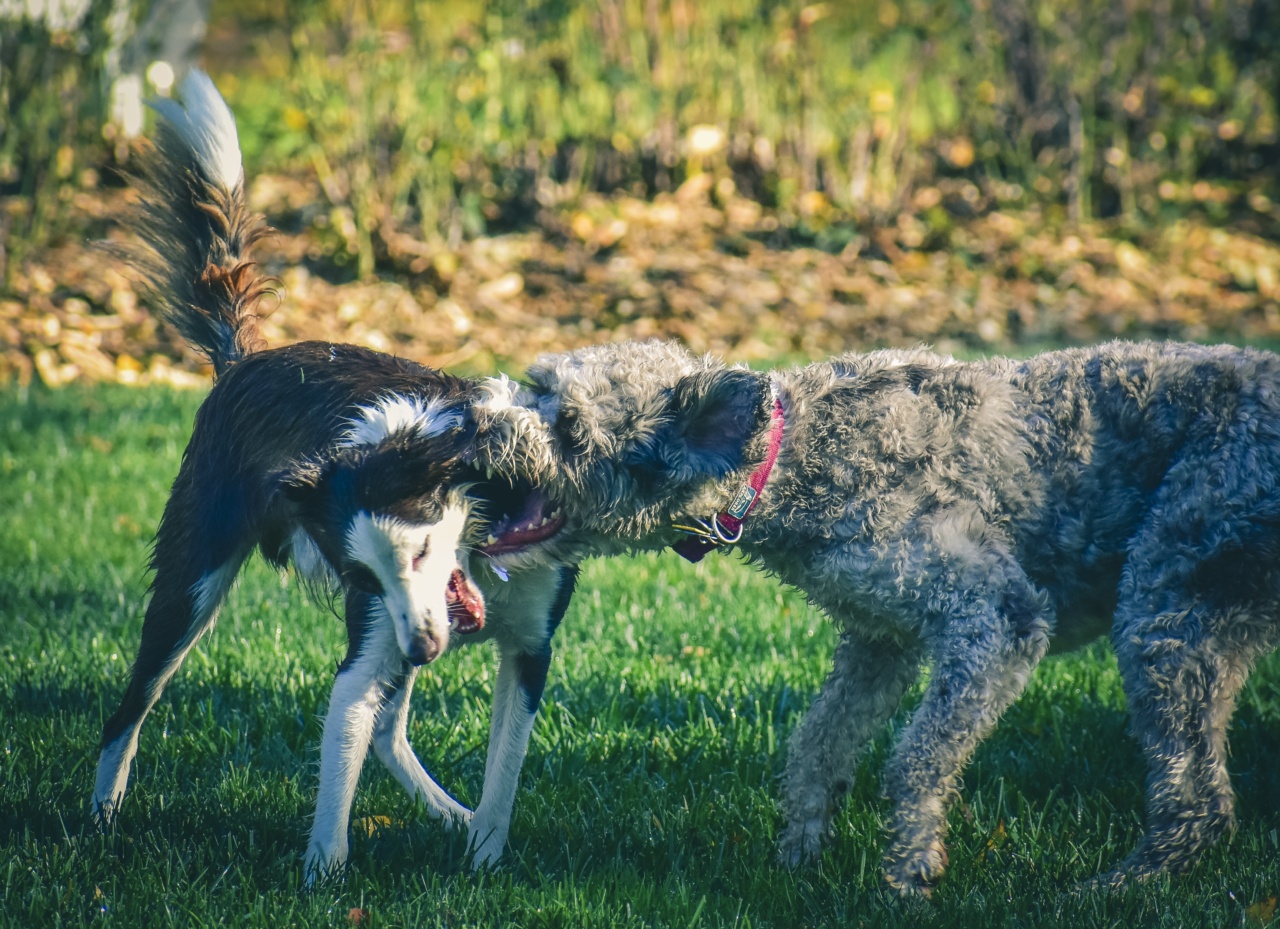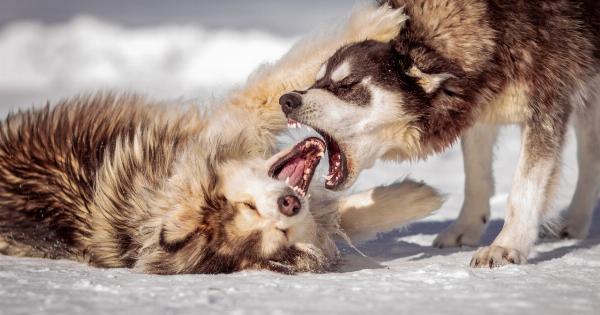Dogs are often described as the best friend of humans because of their loyalty and love for their owners. However, some dogs exhibit aggressive behavior, which can make them difficult to handle and dangerous to be around.
The reasons behind aggressive dog behavior can be different for each animal. Understanding the causes behind aggressive behavior can help pet owners address the issue effectively.
Poor Socialization
Dogs that have not been exposed to different environments and social situations may become fearful and anxious in unfamiliar situations, leading to aggressive behavior.
Puppies should be socialized from a young age to help them interact positively with people and other animals.
Territorial Behavior
Dogs can display aggression when they feel their territory is being invaded. Their sense of territory may not only include their physical surroundings, but also their human family.
When visitors come to a dog’s home, they may view the visitors as a threat and become aggressive.
Protecting Resources
When dogs feel threatened, or fear another dog or a person will take away an important possession or toy, aggressive behavior may be displayed. This behavior often occurs when owners try to remove a toy or a treat from a dog’s possession.
It is important to teach dogs to release and “leave” the objects they are guarding.
Fear and Anxiety
Dogs are capable of feeling anxious and fearful, just like humans. Rather than using communication to convey their emotions, dogs may express them with aggressive behavior.
Fear of loud noises, unfamiliar people, and even objects can trigger aggressive behavior. Even routine activities like going to the vet or groomer may cause anxiety in some dogs.
Pain and Illness
When dogs are in pain or feel unwell, they may exhibit aggressive behavior. Dogs may bite or lash out when someone inadvertently touches a sore or a tender spot.
It’s important to take your dog to the vet if you notice a sudden change in behavior to rule out underlying health issues.
Genetic Factors
Some dog breeds are predisposed to aggression because of their genetic background. The behavior of a specific breed is determined by its genes and can be passed down from one generation to the next.
It’s important to research specific breeds before adopting a dog to determine if they are a good fit for your lifestyle, and if they have any predispositions to aggressive behavior.
Lack of Training
Training is key to preventing and managing aggressive behavior in dogs. Without proper training, dogs may not understand appropriate behavior and may act out aggressively.
Providing positive reinforcement and regular training sessions can help manage aggressive behavior.
Conclusion
Aggressive behavior in dogs can be caused by a wide range of factors, and it is important for pet owners to understand the reasons behind aggressive behavior and how to address it.
Teaching dogs appropriate behavior, socializing them, and providing appropriate training can improve their behavior and prevent aggressive behavior.






























